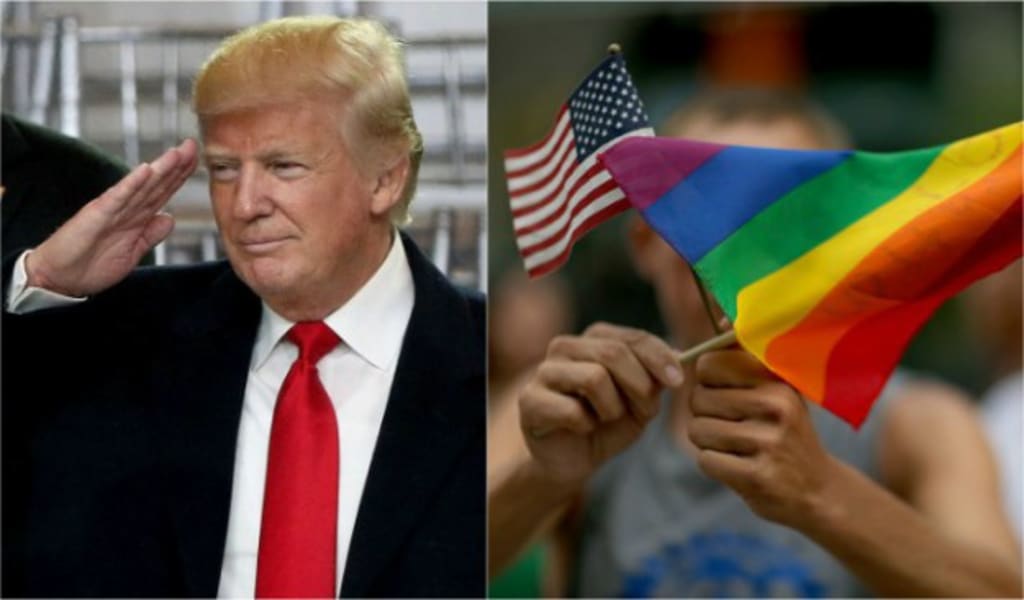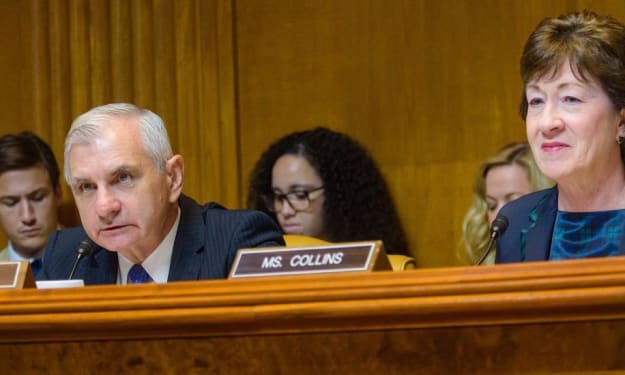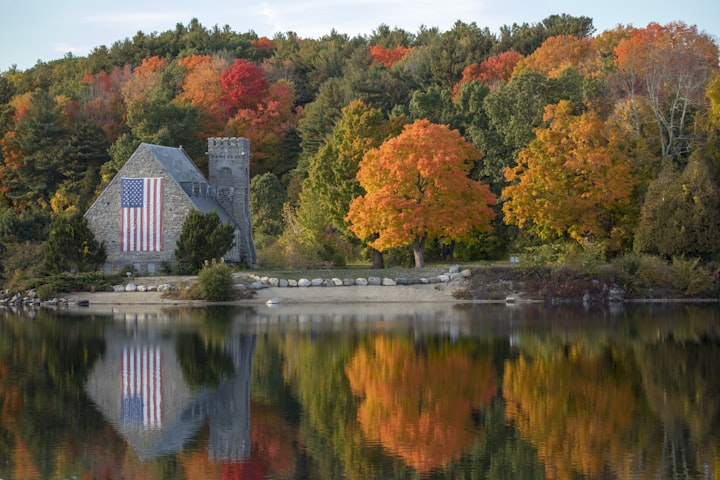#TrumpMilitaryTransBan - WHY?
Citing Medical Costs And "Disruption," Trump Enacts Sweeping Ban On Transgender Individuals' Military Service

Via a series of three tweets in the early hours of July 26, United States President Donald J. Trump pulled the country back another couple of decades in the fight for civil rights for all.
"After consultation with my Generals and military experts, please be advised that the United States Government will not accept or allow..........Transgender individuals to serve in any capacity in the U.S. Military. Our military must be focused on decisive and overwhelming.........victory and cannot be burdened with the tremendous medical costs and disruption that transgender in the military would entail. Thank you," the three tweets on the @realDonaldTrump Twitter account read.
The time stamp on each of the tweets read 5:55 am, 6:04 am and 6:08 am.
Press secretary Sarah Huckabee Sanders did not have an answer, however, as to how this ban would be implemented, and while this perhaps may not be a surprise to some, she also had no answer as to what would happen to the military personnel who are transgender and actively serving. She noted, however, that the White House and the Defense Department would work together "as implementation takes place and is done so lawfully."
Trump's claim that there were "tremendous" medical costs to be faced by the military as a result of transgender individuals serving appears to be questionable, though; a RAND Corporation study commissioned by the Pentagon states that of the estimated 1,320 to 6,630 transgender individuals currently serving in the active component of the American military, all of them may not choose to transition. Further to this is the assertion by RAND's study that "active-component health care costs would increase by between $2.4 million and $8.4 million annually, representing a 0.04- to 0.13-percent increase in active-component health care expenditures" as a result of extending gender transition-related health care coverage.
According to Wikipedia, RAND Corporation "is an American nonprofit global policy think tank originally formed by Douglas Aircraft Company to offer research and analysis to the United States Armed Forces."
The RAND Corporation's study also suggests that the impact on the member's force readiness could be minimal. In fact, the study suggested that allowing transgender personnel to serve openly would create a more inclusive and diverse force, and because policy changes that allowed women and gay, lesbian and bisexual individuals to serve had little to no impact on unit cohesion, it was anticipated that allowing transgender individuals would have much the same effect.
Radha Iyengar, a senior economist with RAND and one of the seven authors of the study, noted that Trump's claim of higher medical costs was in direct conflict with what the RAND study discovered.
"I think the evidence is not consistent with the idea of high medical or readiness costs, including unit cohesion, to allowing transgender personnel to serve openly," Iyengar said.
According to USA Today, the American military is looking to bolster its numbers by 6,000 recruits. Iyengar said that banning transgender individuals from serving will have a limiting effect when it comes to recruitment.
"There is a concern that when you have these types of discriminatory policies, that can create different perceptions among recruiting pools the military might like to target," Iyengar noted, indicating there could be an impact on manpower in general. "There are real costs to the manpower losses of having separation and continued ban on open service, and there are concerns that affect productivity and result in unnecessary separation."
Army vet Rob Cuthbert, who served in both Afghanistan and Iraq, ran the military discharge upgrade program at the Veteran Advocacy Project. He noted, via an op-ed he wrote for USA Today, that Trump's ban lacks consideration for the individuals who have been serving with distinction for years.
"From a counterintelligence and security perspective, this is a nightmare," he said. "Many servicemembers hold highly sensitive national security positions, and we should expect and support absolute honesty from them. The gay ban led to decades of inquisition and some of the worst abuses of military law enforcement. It also allowed servicemembers to potentially be coerced and blackmailed. The transgender ban sets the stage for history to repeat itself."
Even Trump's fellow politicians have spoken out against his ban. Interestingly, beyond the Twitter post early July 26, there does not appear to have been an official announcement.
House Minority Leader Nancy Pelosi said via a statement that the president's decision was a "vile attack."
“Transgender Americans have proudly – if silently – served in our military for years,” she wrote. “But instead of honouring their patriotism, @POTUS has decided to attack their dignity and the very value of their service.”
Both Tony Johnson and Charles Clymer are military veterans who identify as being a part of the LGBTQ spectrum. Johnson was forced to resign under "Don't Ask, Don't Tell" and is also a former Pentagon adviser. He said that the transgender ban shouldn't be about numbers.
"The question is, first, are we a nation that respects our values and our citizens or not?" he asked. "And second, will we welcome everyone who wishes to serve to work in the vital service of protecting our nation?”
Clymer, who identifies as genderqueer, said that the soldiers he knows don't care about gender.
"They care about one thing and one thing only: whether or not they can meet the highest standards expected of any American serving in uniform," he said.
Transgender veteran Kimberly Acoff served for six years without saying a word about her gender identity and said that the experience was "dehumanizing." She added that she felt that Trump's ban has done nothing but further underline the danger that transgender individuals face daily, whether or not they are in the military.
"The last thing I would think I would have to do is be threatened by my president, who is supposed to protect me,” she noted.
No further word has been said about the transgender military ban, though social media continues to buzz with calls for support for transgender individuals who are serving or want to serve.
About the Creator
Christina St-Jean
I'm a high school English and French teacher who trains in the martial arts and works towards continuous self-improvement.






Comments
There are no comments for this story
Be the first to respond and start the conversation.